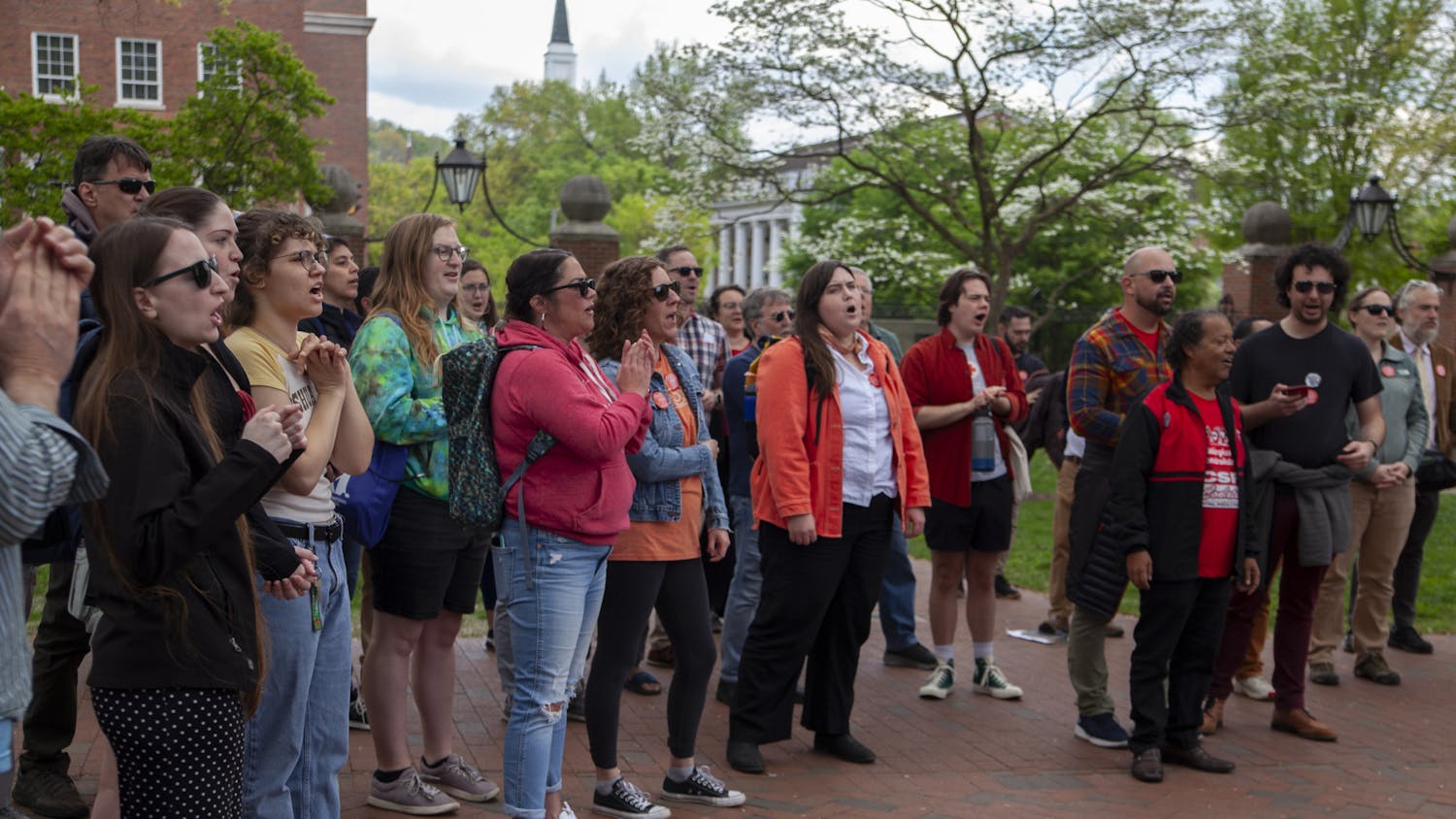Bobcats for Israel members arrested and brought up on charges.
A previous version of this article incorrectly stated that Becky Sebo, president of Bobcats for Israel, addressed Megan Marzec before OU Student Senate's Wednesday night meeting was called to order. The Post regrets the error.
The morning after four Ohio University students were arrested at Wednesday night’s OU Student Senate meeting, the group appeared in Athens County Municipal Court on Thursday.
All of the students — Maxwell Peltz, Gabriel Sirkin, Jonah Yulish and Becky Sebo — pleaded not guilty to individual counts of disturbing a lawful meeting, a fourth-degree misdemeanor carrying a maximum sentence of up to 30 days in jail and a $250 fine.
Their pre-trial hearings were all set for Sept. 24 at 8 a.m. Sebo, 22, whose brother David Sebo is the assistant design editor at The Post, requested her hearing date be moved from Sept. 25, after telling Judge William Grim that the date falls on the Jewish holiday of Rosh Hashanah. The other students changed their dates, too.
Sebo, president of the Israeli-advocacy group Bobcats for Israel, and the others declined to comment, and so did Rabbi Danielle Leshaw, who was on hand to support the students.
OU Police officers arrested the four students at the meeting in Walter Hall after Sebo spoke out against Student Senate President Megan Marzec and her statements concerning the Israeli-Palestinian conflict she made during herrecent ‘blood bucket” challenge video.
Mike Brickner, senior policy director at American Civil Liberties Union of Ohio, said arresting the students was “probably not the right thing” to do, but added that freedom of speech only extends so far.
“I think there may be a question of how much were they disrupting the meeting,” Brickner said. “Was that really necessary?”
Brickner added that arrests are often made when protesters choose to speak to public bodies outside of designated times. Sebo addressed Marzec moments after the senate meeting was called to order, but before Student SpeakOUt on Wednesday.
“The action of Bobcats for Israel only prevented other students from speaking,” Marzec told The Post on Thursday.
According to Jonathan Peters, an assistant professor at the University of Kansas and expert in media law, that’s probably where Sebo and others went wrong.
Senate is not a public body, but still has legal protection, said former Ohio Deputy Attorney General Mark Weaver.
“If you and your friends are standing outside the university center and talking about journalism, that’s a lawful meeting,” Weaver said. “If two drunk guys stumble down the hill and are yelling so you can’t hear what your friends are saying, that’s disturbing a lawful meeting.”
According to Ohio Revised Code 2917.12, it’s unlawful for one to do anything to prevent or disrupt a lawful meeting. This includes acts that are considered disruptive to said meeting, specifically “any utterance, gesture, or display which outrages the sensibilities of the group.”
Though the students each pleaded not guilty to their counts, Weaver said it still may be easy for prosecutors to get convictions.
As he put it, all a prosecutor would have to do to convict Sebo and the others is prove that they not only disrupted the meeting, but also outraged the “sensibilities of the group.”
“Someone just has to take the stand and say that their sensibilities were outraged,” Weaver said. “That’s what would have to happen to get a conviction.”
“The First Amendment isn’t an excuse to break the law,” Peters added.
OU Vice President for Student Affairs Ryan Lombardi sent out a release Thursday evening saying that senate Vice President Caitlyn McDaniel met with Jarrad Gold, president of Alpha Epsilon Pi.
Brickner said those kinds of interactions can improve the situation better than arresting students.
“The answer to speech you don’t agree with is not to have less of it, but to have more of it,” Brickner said.
@emilybohatch
eb346012@ohio.edu





